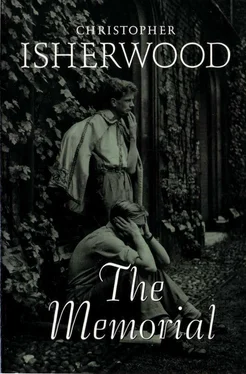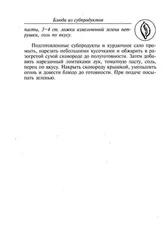Balefanio - tmp0
Здесь есть возможность читать онлайн «Balefanio - tmp0» весь текст электронной книги совершенно бесплатно (целиком полную версию без сокращений). В некоторых случаях можно слушать аудио, скачать через торрент в формате fb2 и присутствует краткое содержание. Жанр: Старинная литература, на английском языке. Описание произведения, (предисловие) а так же отзывы посетителей доступны на портале библиотеки ЛибКат.
- Название:tmp0
- Автор:
- Жанр:
- Год:неизвестен
- ISBN:нет данных
- Рейтинг книги:4 / 5. Голосов: 1
-
Избранное:Добавить в избранное
- Отзывы:
-
Ваша оценка:
- 80
- 1
- 2
- 3
- 4
- 5
tmp0: краткое содержание, описание и аннотация
Предлагаем к чтению аннотацию, описание, краткое содержание или предисловие (зависит от того, что написал сам автор книги «tmp0»). Если вы не нашли необходимую информацию о книге — напишите в комментариях, мы постараемся отыскать её.
tmp0 — читать онлайн бесплатно полную книгу (весь текст) целиком
Ниже представлен текст книги, разбитый по страницам. Система сохранения места последней прочитанной страницы, позволяет с удобством читать онлайн бесплатно книгу «tmp0», без необходимости каждый раз заново искать на чём Вы остановились. Поставьте закладку, и сможете в любой момент перейти на страницу, на которой закончили чтение.
Интервал:
Закладка:
Yes, he really is my idea of a saint, Anne thought, her eyes resting on Eric's tall bony figure, there in the corner, by her mother. You could have put him straight into the Bible, just as he was, in his plain, but obviously rather expensive dark suit, with his metal-rimmed glasses and the odd pauses in his speech, relics of his stammer. He wouldn't be out of place. There was something ancient and sombre
about him. And when he looked at you, you felt that he was absolutely honest and fearless and good. He had beautiful eyes.
Perhaps they were all just a little bit afraid of Eric—yes, even Mary. They showed it when they chattered to him and made jokes in their own language, trying to pretend that he was one of themselves and nothing to be alarmed at. They knew quite well that he wasn't.
And really, what did any of them know about him, that mattered? What had made him, for instance, at the time of the General Strike, throw up his whole Cambridge career just when he was doing so brilliantly and was the coming man, as people said, and take to this work of his ? Of course, it was all perfectly splendid—so splendid that it made one feel a little uncomfortable and chilly to think about it. Eric certainly wasn't interested in politics any more. From something he'd once said, he seemed to lump Communists and Fascists and everybody else together in one heap. And now that he was rich, he was carrying on just the same. He must spend at least half the money from the estate on his various funds and societies and clubs. Wealth only made him slightly more remote from them—though he was very generous, and had taken to presenting Mary with bottles of her favourite brandy. How strange it was to think of him—their own age—being confided in and seriously consulted at committees and organising
relief work and making reports. Fancy herself doing that—or Maurice either, though he was so very much the business man now. And Eric never forced his work on their notice. Indeed, he often apologised for it—as when he came for the evening and had to explain that he'd told somebody they could ring him up there at such and such a time. He was always busy.
I wish, thought Anne, I had the nerve to talk to Eric. A really good talk. I should—yes, it sounded rather absurd, but I should like to ask his advice. She felt she'd take what he said as a kind of oracle. About all sorts of things—well, yes—curse it— about Tommy.
"I'm relying on you, my dear, to make this evening bearable," Lady Klein was saying to Mary as the last of the audience filtered out. Eric, on a step-ladder, was helping Anne unpin the sackcloth curtains from the wall. Already, the men had arrived to fetch away the piano. Mary was tidying up, encouraging one or two enthusiastic younger members who had volunteered to stack the deck-chairs in the cupboard at the back, counting some money which she had illegally received at the door, for tickets, in envelopes.
"I'll do my best," she promised.
"And bring anyone you can. I must fly off. I'll tell the car to wait."
"More work for the troops," said Mary to Anne and Eric, when she'd gone. "Be little heroes, won't you, and help your old Ma?"
Lady Klein's house had no carpet on the polished stairs. A precaution, somebody said, against drunkards. In the drawing-room there were Ming horses, Chinese embroidery, lacquer, old glass and modernist lamps with petal-like brass shades, possibly designed to represent Mexican desert plants. In the dining-room was a portrait by John, and supper. Bowls of salad. A chicken or two. Fruit. Somebody was playing on the spinet in an alcove. Everybody was standing up. The whole company slowly and uneasily circulated, like granules in amoeba. Eric had the feeling that he must keep turning round and round lest some kind of area of danger should form behind his back.
He talked to Priscilla Gore-Eckersley and Naomi Carson. Looking round, he saw Mary, like a veteran warrior at bay, amusing, single-handed, six or eight people. Georges was hemmed in by admiring women eager to talk French. Sir Charles Klein, a frank, simple man, came forward to congratulate Earle. He had been impressed by Earle's hitting in Ce qu'a vu le vent d'Ouest. "By George," he said, "I shouldn't like to pick a quarrel with you, young man." Margaret's laugh squealed out. And there was Maurice, just arrived, with the girl he'd been taking out to dinner. Yet another new one.
The women laughed. Priscilla and Naomi laughed, anxious to be amused, never amused. Do they despise me as much as I despise them, Eric wondered. The proud enemies, smoking, laughing. "It sounds amazingly funny." No, they were not to be despised. They are formidable, Eric thought. Tell me, what is it you want? he would have liked to ask Priscilla Gore-Eckersley, the biologist, who had done so brilliantly in all her examinations, who lectured at the London University. She was questioning him about the work in South Wales. He began to explain to her the system of food tickets given by the Guardians. Part of the groceries obtained with the sixteen shillings-worth food ticket, Eric explained, has often to be given to pay the rent. Becoming serious, forgetting the Kleins' party, he described, with brusque gestures, a town where fourteen of the nineteen pits had been closed down and thirteen shops in the main street had had to shut. Even the Chairman of the Board of Guardians was nearly starving. A man who owned four houses was starving because he could get no rent and because, as a householder, Guardians' relief was impossible. Everybody suffers. The children are tubercular. Families of eight share a room. The houses are mostly condemned. People live on bread and pickles.
She nodded seriously, moving her eyelashes. But why are we talking like this ? Eric wanted to yell at her, becoming aware again of her half-naked body, cunningly concealed and revealed by the sex-armour, her Eton crop, her plucked eyebrows, her scent—Good God, why are you so dishonest? Quick, let's go upstairs. There must be a bed somewhere in this damned house. But no, she didn't seem to want a bed. Not with me, at any rate. Then why does she waste my time? He turned from her to Naomi, the less subtle whore, who had asked, smiling:
"Eric, couldn't you possibly get me a job in a Communist Sunday School?"
It was the usual cry. Somebody do something. The party was beginning to stick. Lady Klein looked grim. Charades were suggested, with enthusiasm. But nobody wanted to act.
"Mary as Queen Victoria."
"Mary as Queen Victoria."
"Personally, I've never seen this immortal performance."
"Oh, but, darling, you must. It's classic. Mary, do!"
"Mary, you must!"
"Don't let us go down to our graves unsatisfied."
"But you've all seen it," Mary protested.
"We all want to see it again."
"Very well. But I must have my full London company. Let me see, who's done this before?"
Various performers were present.
Yes, and Margaret was the lady-in-waiting. But what about Lord Tennyson?
"The heavy lead? Oh, that was Edward Blake. Don't you remember how screamingly funny he was in that beard, reading In Memoriam?"
"What a shame he's not here."
"Out of Town, isn't he?"
Well, at last they were all chosen. Lady Klein, beaming gratitude, conducted Mary and Margaret to one of the best bedrooms, loaded them with clothes, old lace, brooches, everything for makeup.
"Just use anything you like."
"Thank you so much. We won't be long."
Mary sat down at the glass and began doing her hair. Margaret was listlessly inspecting the pile of scarves and shawls. Abruptly she exclaimed:
"Why the hell doesn't he write, or something?"
Mary went on steadily brushing. She said soothingly:
"Edward was never a model correspondent."
Читать дальшеИнтервал:
Закладка:
Похожие книги на «tmp0»
Представляем Вашему вниманию похожие книги на «tmp0» списком для выбора. Мы отобрали схожую по названию и смыслу литературу в надежде предоставить читателям больше вариантов отыскать новые, интересные, ещё непрочитанные произведения.
Обсуждение, отзывы о книге «tmp0» и просто собственные мнения читателей. Оставьте ваши комментарии, напишите, что Вы думаете о произведении, его смысле или главных героях. Укажите что конкретно понравилось, а что нет, и почему Вы так считаете.





